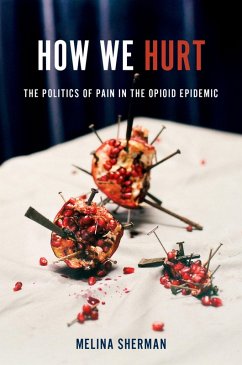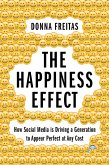How We Hurt dives into the institutional and cultural dimensions of the ongoing opioid epidemic. In a detailed analysis of pain management, opioid regulation, pharmaceutical branding, self-help, and public discourses on opioid addiction, Melina Sherman argues that the linchpin underlying the opioid epidemic's evolution in North America is the problem of pain. By unpacking the politics of pain in different domains, How We Hurt shows how the crisis emerged and shifted, and why it looks the way it does today. The book's chapters begin by tracing the trajectory of opioids in pain management, where decisions regarding the measurement of pain led to relief becoming wedded to opioids in medicine. The following chapters examine the problem of pain in opioid regulation, pharmaceutical branding, and the self-help industry. In these areas, a disastrous combination of strategic ignorance and deep-seated ties between public health entities and pharmaceutical companies drove the influx of opioids onto the market and into our medicine cabinets. The book's penultimate chapter applies the analysis of pain to the problem of opioid addiction in popular discourse and shows how the opioid crisis has evolved alongside new conceptions of addiction and people who use opioids that condition whose pain is seen as legitimate and whose is not. Finally, the book concludes by considering the implications of its findings for the development of drug policy and future research on public health disasters, insisting on an interdisciplinary and multi-faceted approach to the study of pain and its place American culture.
Dieser Download kann aus rechtlichen Gründen nur mit Rechnungsadresse in A, B, BG, CY, CZ, D, DK, EW, E, FIN, F, GR, HR, H, IRL, I, LT, L, LR, M, NL, PL, P, R, S, SLO, SK ausgeliefert werden.









